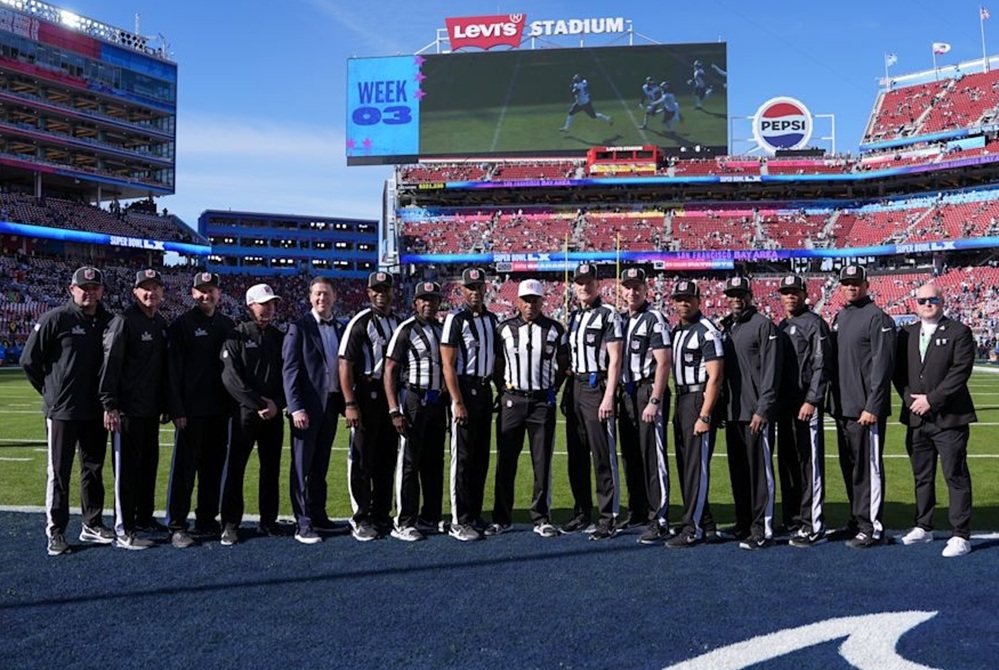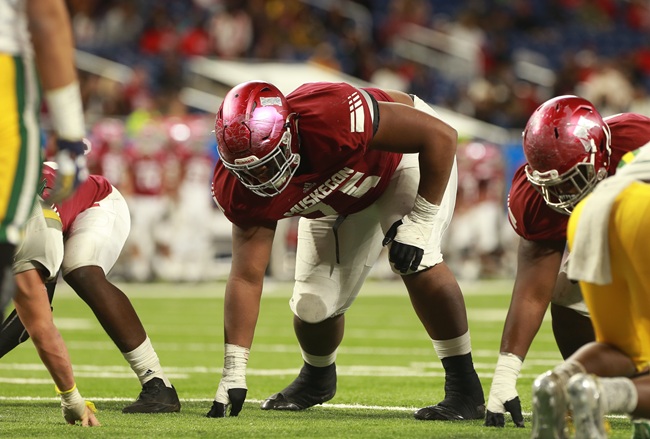
Scheduling Controversy
November 14, 2017
A dozen years ago, I asked our counterpart organizations in other states if they scheduled their schools’ regular-season varsity football games. Very few did so.
More recently, I’ve realized that I didn’t ask enough questions. It turns out that few statewide high school associations tell schools who they play each week of the regular season. However, many more give schools the group of opponents they may schedule. They place schools in leagues and/or districts and/or regions and instruct schools to schedule from among those schools only or predominantly.
I have been waiting for the tipping point where a sufficient number of high schools in Michigan are sufficiently stressed over scheduling football games that they would turn to the MHSAA to solve the problem.
I’m anticipating this might occur first among schools playing 8-player football, and that success there will lead to our assistance for 11-player schools.
One approach – the simpler solution – would work like this:
-
All 8-player schools within the enrollment limit for the 8-player tournament would be placed in two divisions on the basis of enrollment in early March. About 32 schools in each, based on current participation.
-
At the same time, each division would be divided into four regions of about eight schools.
-
In April, the schools of each region would convene to schedule seven regular season games for each school.
-
Based on current numbers, schools would still have two open weeks to fill, if they wish, for games with schools in other regions or of the other division or in neighboring states.
A second option – the date-specific solution – would provide every school its weekly schedule for all nine dates, or weeks 1 through 8, or weeks 2 through 8, depending on local preferences. This would not be difficult in concept once there is agreement on what criteria would be used and what value each criterion would have.
For example, one important criterion would be similarity of enrollment; another of great value would be proximity. Perhaps league affiliation would be a factor with some value. Perhaps historic rivalries would be another factor with a value. Then the computer spits out schedules for each school for every week for two years, home and away.
I don’t campaign for this task because, frankly, it will produce complaints and controversy. But if this organization exists to serve, then this is a service that today’s chronic complaints tell us we should begin to provide soon.
I suggest we do this for 8-player football for the 2019 and 2020 seasons (with a paper trial run for 2018). If it proves successful, we could expand the service to 11-player schools as soon after as they are satisfied with our efforts for 8-player schools.

In Shoulder Pads & Stripes, Michigan Superbly Represented at Super Bowl LX
By
Jon Ross
MHSAA Director of Broadcast Properties
February 9, 2026
MHSAA football champion? Check.
NCAA football champion? Check.
Super Bowl champion? Check.
Winning has become routine for Muskegon’s Anthony Bradford.
Bradford starred on the offensive line for the Big Reds, helping deliver the MHSAA 11-Player Division 3 championship in 2017. He kept collecting titles at LSU as part of the Tigers’ national championship team in 2019. Now, he’s reached the sport’s biggest stage as a Super Bowl champion.
 The Seahawks’ starting right guard played a major role in Seattle’s second Super Bowl title, a 29-13 win over New England on Sunday in Super Bowl LX. Seattle rushed for 141 yards and allowed just one sack in the victory.
The Seahawks’ starting right guard played a major role in Seattle’s second Super Bowl title, a 29-13 win over New England on Sunday in Super Bowl LX. Seattle rushed for 141 yards and allowed just one sack in the victory.
Bradford wasn’t the only former MHSAA athlete connected to the Seahawks this season. Wide receivers Tyrone Broden (West Bloomfield, 2019) and Cody White (Walled Lake Western, 2016), along with offensive lineman Logan Brown (East Kentwood, 2019), spent time on the practice squad or injured reserve. Defensive lineman Johnathan Hankins (Detroit Southeastern, 2010) was released in early December.
New England also featured MHSAA ties, with offensive lineman Mike Onwenu (Detroit Cass Tech, 2016) and punter Bryce Baringer (Pontiac Notre Dame Prep, 2017) on the Super Bowl roster.
Super Bowl LX was officiated by referee Shawn Smith, a graduate of Detroit Cody, where he played football and ran track. Smith was a registered MHSAA official for 18 years before advancing to the college ranks and eventually the NFL.
PHOTOS (Top) Shawn Smith, center with white hat, poses for a photo with his officiating crew at Sunday's Super Bowl. (Middle) Muskegon's Anthony Bradford lines up against Farmington Hills Harrison in 2017. (Smith photo courtesy of the NFL/Ben Liebenberg.)

